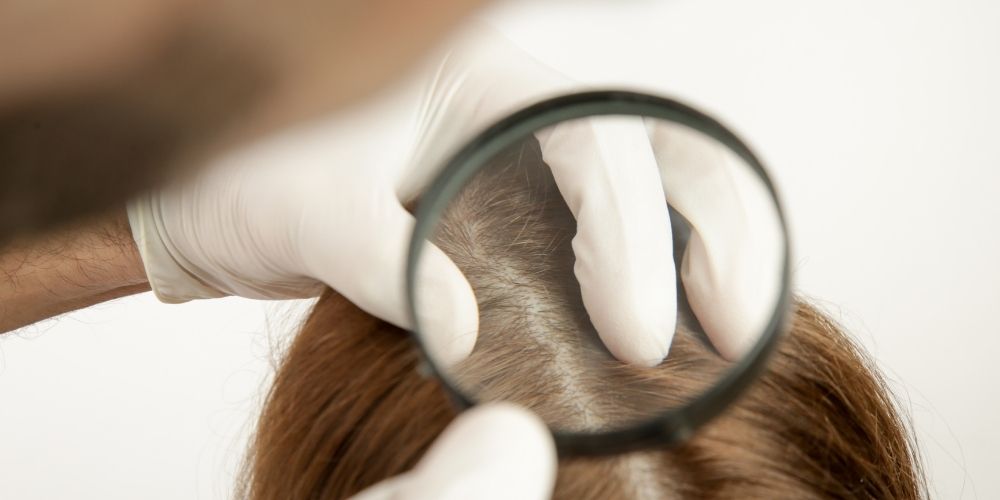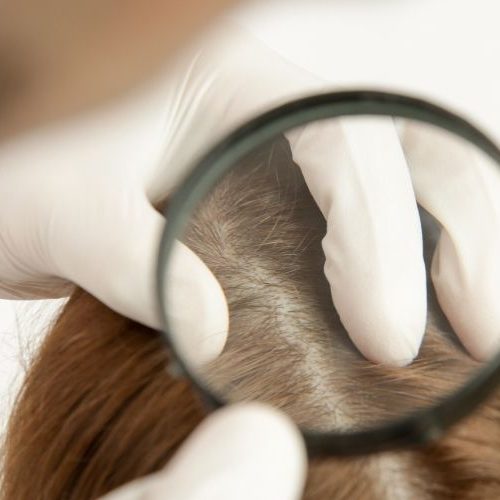Home » How to Treat Scalp Eczema Naturally: Home Remedies for Itchy, Flaky Scalp


Seborrheic eczema, commonly referred to as scalp eczema, ranks among the most widespread forms of inflammatory skin conditions. As many as 40% of the population is affected at some point in their lives, with the highest prevalence among babies and older adults. Although not life-threatening from a medical perspective, flaky scalp eczema can be extremely uncomfortable and may severely impact an individual’s quality of life. Generally, the condition is underdiagnosed, since lots of people do not know it may affect the scalp; they are more familiar with the involvement of the face, ears, chest, and groin. Most people know about aloe vera and coconut oil for eczema scalp care, but they likely have not heard of apple cider vinegar. Others believe scalp eczema occurs only in infancy, while still others believe that it occurs only in adults-oblivious to the fact that any age may be affected, though the symptoms generally start within the first three months of life and between 30 and 60 years.
The skin cycle renewal changes and the protective skin barrier function is compromised. Thus, symptoms like itching and flaking start to set in. However, what many people probably do not know is that under some conditions, flaky scalp eczema may also present with exudation and scabs. The person becomes embarrassed and he wants an immediate solution that would at least make him stop scratching his head. There are many people out there who have acquired the nickname “monkey scratching head” due to their chronic habit of scratching the head. Recognition is usually the first step to effective treatment of the problem. To many people, hair and scalp are very valuable beauty features; it is one of the first things many people notice about others. Already it is agreed that flaky scalp eczema can seriously affect not only the appearance of a person but even their emotional condition, especially in women younger than 40 years.
Although thorough research has yet to explain every puzzling part of the matter, scalp eczema has been proven to have very multifactorial causes. A genetic predisposition is the main culprit. External and internal environmental factors make the expression of an atopic condition at the skin surface more or less likely, thus causing a potentially lifelong skin condition. The scalp has its natural flora, and many times, the causes of signs and symptoms can be connected to the explosion or increase of environmental organisms or some kind of hyperreaction to specific things it might come in contact with. Such things are only potential allergens or substances that did not work well with the skin or natural flora. In broad terms like these, what a reader would call “eczema” manifests itself as redness, itching, and flakiness in areas that maintain an organic production of many more dead skin cells than, for example, a simple hair strand. In the most common “atopic dermatitis,” the usual symptoms appear together with direct and intimate involvement of the organs of the senses. Atopic dermatitis literally gives children and their caretakers a lot to chew on with the chronic rounds of infection, allergies, inflammatory flares, itches, and other unpleasant side conditions. “Seborrheic dermatitis” is the grown-up counterpart.
Symptoms may vary, but diabetes, immunocompromise, hormonal imbalances, oral contraception, excessively warm climatic conditions, genetic conditions, stress, etc. can all act as local or subclinical primary or secondary causes of the eczema, exacerbated by environmental factors and lifestyle. It is worth noting the scalp is very rich in hair follicles and glands, and together the two especially make it an excellent absorptive surface. A small number of negatives in diet and the change in hormonal composition through one’s lifestyle or institutions can also exacerbate the condition. Overall, these aggravating factors make the scalp an excellent place to exhibit external distress and offer an overall unhappy, thrifty thrill.
About 1 in every 50 people get hit by scalp eczema. Here are some cool home remedies for scalp eczema and natural ways to take on flaky scalp eczema and bring down those annoying symptoms:
Tea tree oil is pretty awesome for nailing scalp eczema scalp care. Packed with antibacterial and antifungal stuff, it kicks the condition right in the butt. You wanna use it by mixing it with some water and get it on your head, or you can be slick and add a few drops to your shampoo and conditioner. Give your hair and head a good rub and don’t rush the rinse – you gotta wash it out nice and proper. If you’re new to this, tea tree oil is your buddy because it’s super chill and won’t bug your skin.
Aloe vera’s up next, and it’s a powerhouse for fixing up all sorts of skin hiccups. It’s like a mega moisturizer and keeps that eczema itch at bay. Go grab some fresh aloe vera goop or juice, slap it on your noggin, and let it work its magic for at least half an hour before you wash it off.
Coconut oil – This stuff is like a zen master for your itches and dry spells. It’s simple but super effective at calming things down. As it moisturizes, one should try using organic virgin coconut oil. To anyone who may want to add to the working of the oil, Vitamin E can be added. It can be applied directly to the scalp and left on for about five minutes. Light massage may help absorb into your scalp. Then wash your hair.
Other treatments of flaky scalp eczema include apple cider vinegar, lemon juice, and baking soda. Generally, they are not too overdrying; they also help in reducing the pH level of the scalp. Once the pH level of the scalp is balanced, itchy scalp eczema relief and flaky scalp eczema conditions tend to go away. These home remedies for scalp eczema need to be followed every day for effective results. Eczema scalp care with medicinal products or natural remedy does not work instantly. Some of these remedies will not work well and may even lead to side effects in some people. One should select the remedy that best suites your skin since only that remedy will work out effectively in your system. The best alternative for natural treatment for scalp eczema that have no side effects and are thus safer compared to medicinal treatments in use today. Overall, they generally bring a halt to symptoms manifesting from scalp eczema.
Lifestyle Changes: One of the prevention strategies of flaky scalp eczema is changing some few aspects of our lifestyles. The diet that is heavily supplied with fresh vegetables and fruits keeps the balance in our body, hence on our scalp, too. Adding about 2 liters of water per day to our body helps to keep it fully hydrated and may be quite useful, too. Exercising and meditating to manage our stress and deal with it in a timely and healthy manner can also relieve the severity of the condition. We can make some changes in hair care to achieve maximum results. Firstly, avoiding hair products that contain alcohol or any other specific chemical that acts as a major culprit in causing or aggravating scalp dermatitis can be most helpful. In addition, avoidance from environmental ones and other hair products that may cause irritation to the skin are most important for a healthy scalp. We can make our own solution by just observing the many triggers of eczema and preventing them. For example, if we know that an individual is allergic to hair dye, then totally staying away from hair dyes might be the recommended cure.
Careful shampooing: Staying away from chemicals and other ingredients in hair products can go a long way in avoiding scalp eczema. Whatever kind of scalp disorder we may have, a gentle hair care regimen helps maintain a healthy scalp environment and reduces irritation. This also means that by being able to avoid hair products whenever possible or feasible, it will, therefore, limit reactions. Cleanse: It is important for the scalp to be cleaned regularly and efficiently for its health. It helps get rid of excessive oil of the scalp and hair, dust, dirt, and other types of matter that build up on the scalp. Always choose a shampoo per the severity of the eczema. Consider removing the scalp from residues of the external factors. If you do not get rid of the irritation, then it will not stop the scalp eczema anytime soon. Research more with regard to shampoos.
You should seek professional help or go to the doctor for eczema scalp care if you see a rapid worsening of any symptoms — that is, more severe redness, bald patches, sores, or pain or signs of infection (flaking that turns yellow, green, brown, or develops an unusual odor). Major symptoms other than those above that would likely benefit from a healthcare professional’s evaluation or intervention can include any of the following:
Irritation or itchiness that continue to interfere with daily life despite good adherence to home remedies for scalp eczema for 2 to 4 weeks. Any signs and symptoms of other systemic diseases. If healing of itchy scalp eczema relief or bothersome peeling is not fully achieved by your self-guided home remedy trial after 3 months. Although it is especially important to see a healthcare professional regarding these symptoms if you are experiencing severe complications or overall disease severity, pursuing medical evaluation would be reasonable if you have simply begun to suspect or worry about them from the start.
Depending on the results of the initial consultation in the doctor’s office, there are at least three types of healthcare professionals you might next need to see to help in managing eczema: Dermatologist — to explore the possibilities and the need for prescription medications in managing skin symptoms. Allergist/immunologist — to assess and develop appropriate treatments for the pan-body-level immune system’s overreactivity potentially causing your condition. Psychologist/LMA — to involve in therapy of stress or lifestyle changes that can lead to decreased eczema symptoms or better overall mental health.
Remember, whether you are able to see one of these professionals, another, or no professional at all, it can speed up your own healing to document your symptoms and the effects of the treatments you try. Also, while some forms of eczema and even severe cases may not yet be curable, the management techniques these professionals offer may prove useful to help limit both permanent damage and daily symptoms. While prescription medications or other therapies may play a role in the management of severe flaky scalp eczema in some cases, most people can significantly alleviate eczema symptoms with natural treatment for scalp eczema options.